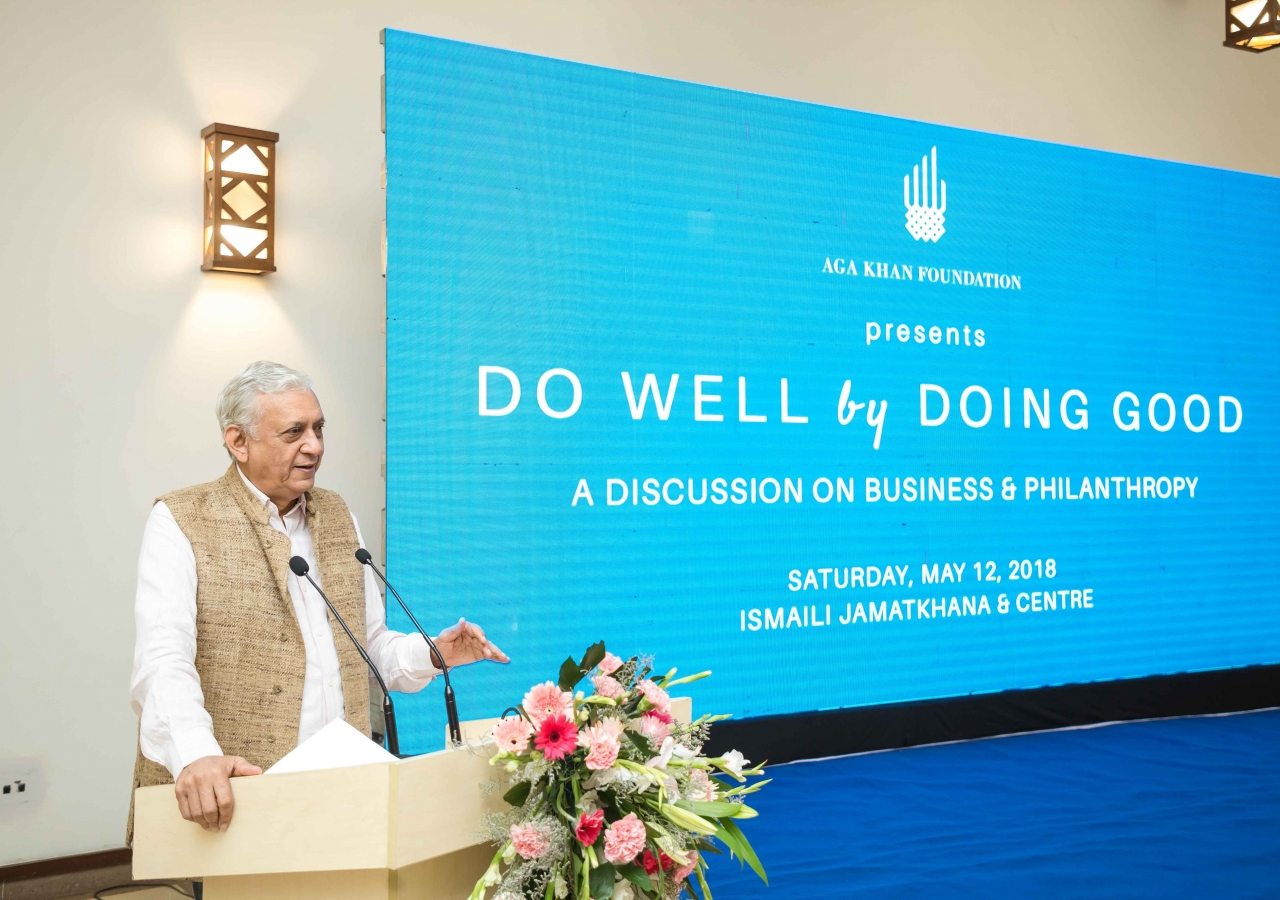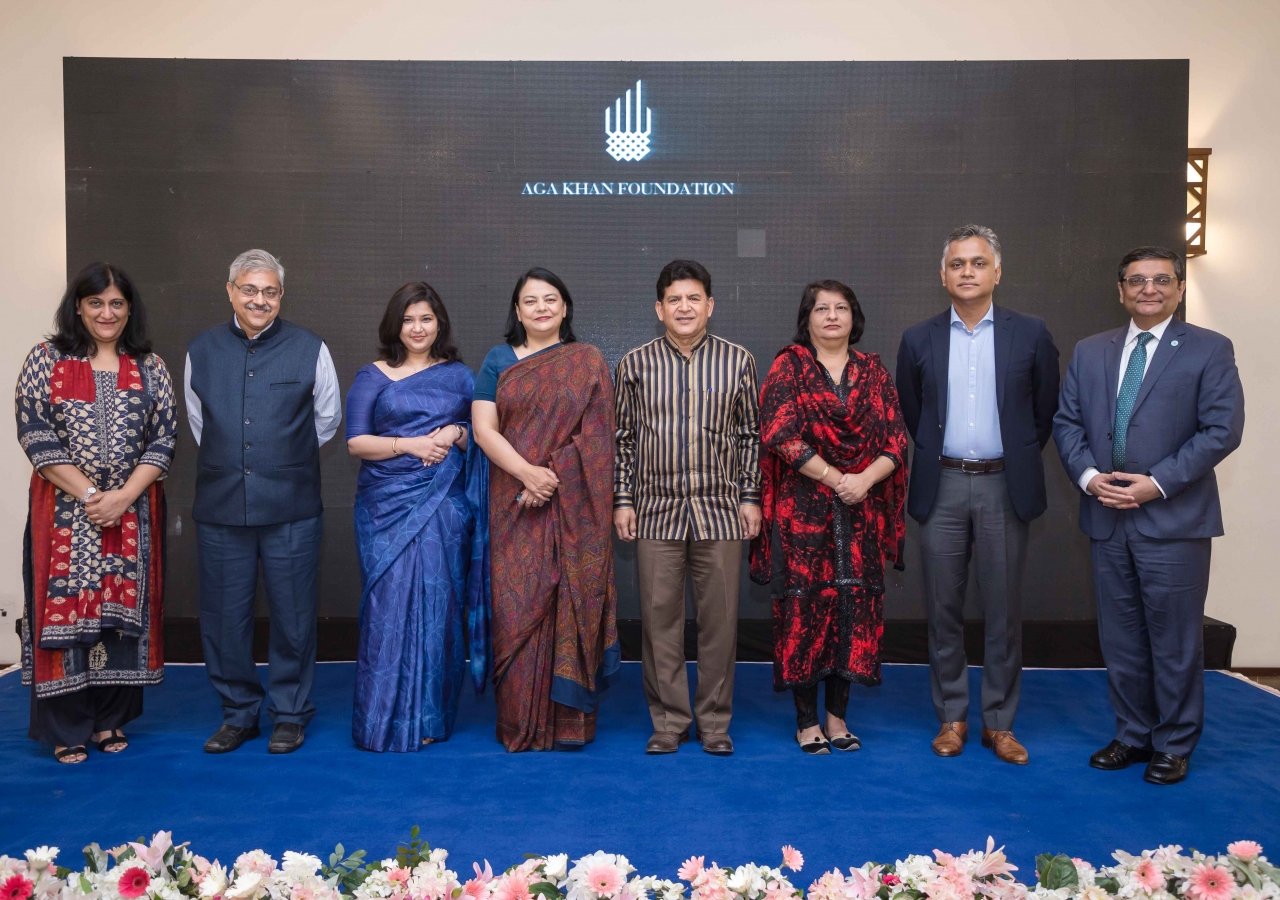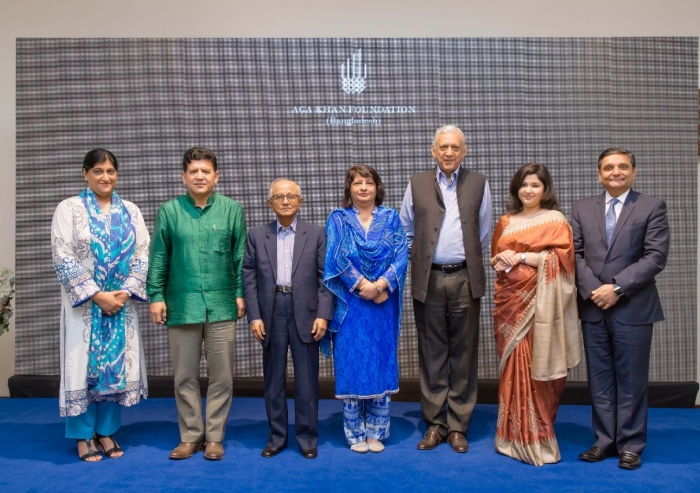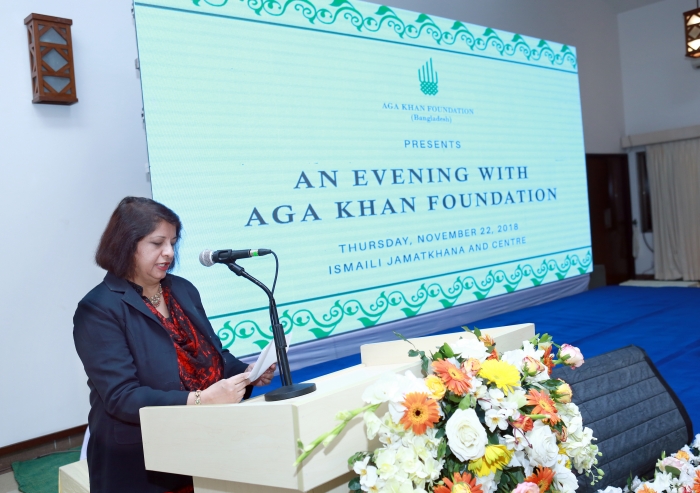“This is an extremely timely initiative,” remarked the Chief Guest, Dr. Gowher Rizvi, the Honorable International Advisor to the Prime Minister. He went on to set the context for the discussion by making the distinction between charity and philanthropy, and highlighting what makes a good philanthropy. “Philanthropy, when properly directed, when it listens to the people whom is it is serving, can be very successful.”
Ms. Dilshad Dossani, Chairperson of the Aga Khan Foundation (Bangladesh)’s National Committee, outlined the impetus behind the seminar. “The notion of indigenous philanthropy and the paradigm shift towards self-reliant development, we believe, has never been more relevant than it is today in the Bangladesh context.”
Mr. Apoorva Oza, Chief Executive Officer, Aga Khan Rural Support Program (India) spoke about corporate social responsibility, highlighting lessons from the Indian context. “There is an initial tendency among many corporates to do a lot of charity work, what we call transactional work, but the real change comes from transformational work, when we attack the roots of the problem, and that is a slow process for corporates to learn, but it is happening.”
A panel discussion was held, moderated by Dr. Hossain Zillur Rahman, Executive Chairman, Power and Participation Research Centre, which featured Ms. Nihad Kabir, President, Metropolitan Chamber of Commerce and Industries, Dhaka and Mr. Syed Nasim Manzur, Managing Director, Apex Footwear Ltd.
The panelists agreed that corporates should undertake philanthropy and be socially responsible because it makes good business sense and it allows corporates to influence the kind of society in which the business will operate. They also suggested that corporates could choose to take on one social issue and drive forward significant change on that issue. Corporates have the “choice of being token or the choice of being significant,” said Dr. Rahman. “They have the opportunity to shape the agendas of tomorrow.”









